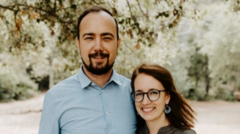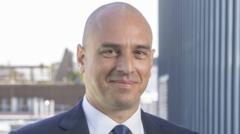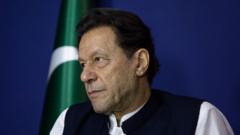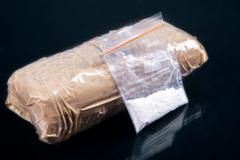Dávila, accused of facilitating cocaine smuggling while leading Bolivian anti-drug efforts, will stand trial in the U.S.
Bolivia Sends Former Anti-Drug Chief to Face Justice in the U.S.
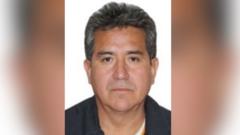
Bolivia Sends Former Anti-Drug Chief to Face Justice in the U.S.
Extradition of Maximiliano Dávila marks a significant legal milestone in international drug trafficking.
Maximiliano Dávila, Bolivia’s former anti-drugs director, has been extradited to the United States to face serious drug trafficking charges. Known as "Macho," Dávila is alleged to have played a pivotal role in cocaine smuggling operations to the U.S. during his tenure as the head of Bolivia's anti-narcotics agency. This extradition was sanctioned by Bolivia's Supreme Court in late November and executed on Thursday, despite Dávila's denial of any misconduct.
Since February 2022, Dávila has faced imprisonment on corruption charges within Bolivia. Simultaneously, U.S. officials unveiled an indictment against him, alleging his involvement in narcotics trafficking as well as a related arms charge. According to the U.S. Department of State, Dávila abused his former role to "protect aircraft used to transport cocaine to third countries," which were subsequently meant for distribution in the U.S.
If found guilty, Dávila could face a prison sentence ranging from a minimum of 10 years to life. The State Department even established a reward of up to $5 million for information leading to his conviction in 2022.
During Dávila’s leadership of the Bolivian Special Forces for the Fight Against Drug Trafficking (FELCN), which was under former President Evo Morales from 2006 to 2019, he purportedly established a broad network for drug smuggling. Following the extradition, Morales expressed outrage in a post on social media, claiming that Bolivia has been reduced to a "U.S. Colony" as citizens are handed over without proper trials.
Morales, who himself is currently under investigation for alleged serious crimes—a charge he vehemently denies—has called for an end to these inquiries. His supporters have mounted protests around the nation. Recently, he claimed to have survived an assassination attempt, an allegation the Bolivian government has rejected. This complex interplay between drug trafficking, international relations, and political strife continues to unfold in Bolivia.
Since February 2022, Dávila has faced imprisonment on corruption charges within Bolivia. Simultaneously, U.S. officials unveiled an indictment against him, alleging his involvement in narcotics trafficking as well as a related arms charge. According to the U.S. Department of State, Dávila abused his former role to "protect aircraft used to transport cocaine to third countries," which were subsequently meant for distribution in the U.S.
If found guilty, Dávila could face a prison sentence ranging from a minimum of 10 years to life. The State Department even established a reward of up to $5 million for information leading to his conviction in 2022.
During Dávila’s leadership of the Bolivian Special Forces for the Fight Against Drug Trafficking (FELCN), which was under former President Evo Morales from 2006 to 2019, he purportedly established a broad network for drug smuggling. Following the extradition, Morales expressed outrage in a post on social media, claiming that Bolivia has been reduced to a "U.S. Colony" as citizens are handed over without proper trials.
Morales, who himself is currently under investigation for alleged serious crimes—a charge he vehemently denies—has called for an end to these inquiries. His supporters have mounted protests around the nation. Recently, he claimed to have survived an assassination attempt, an allegation the Bolivian government has rejected. This complex interplay between drug trafficking, international relations, and political strife continues to unfold in Bolivia.











